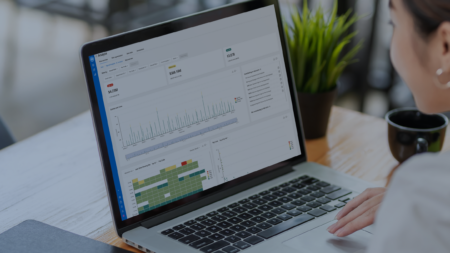The more things change, the more they stay the same (at least that is what my mom would say). This wisdom can only be partially applied to the world of auditing. With the explosive growth of (big) data, and with an ever more connected, globalized world, the manner in which we approach auditing must change, and it must change significantly. The roles and processes of auditing, and the people working in that area will remain the same, but the way we conduct audits will change to address these new realities.
The good news is that, armed with new technologies such as Machine Learning and Artificial Intelligence, auditors can be empowered to face these new challenges — while potentially delivering better assurances on the state of their client’s business, and providing more value-added services than ever before.
The purpose of this blog post is to look at the role of auditors and how it is changing in today’s new landscape.
Auditing is a process in which one party examines another party’s information to ensure that it is fairly stated (Loughran).
One of the core methodologies of the modern audit process is sampling, which draws conclusions about a data population by examining a subset of the data. The reason that sampling is relied upon is one of cost and time, it would simply be too expensive, or too time consuming to audit all of the data manually. There are inherent weaknesses to sampling however, as human bias and the possibility of erroneous decisions based on the conclusions resulting from the examination of only a sample of data, present real problems.
As my colleague Robin Grosset, CTO of MindBridge Ai once said, “Sampling is a coping mechanism for dealing with large data, because it is humanly not possible to examine each and every transaction.” The alternative is to examine all of the data, which can be onerous and not very practical.
The situation is further compounded by the explosive surge of big data. The International Data Corporation (IDC) says that the amount of information stored in the world’s IT systems is doubling about every two years. By the year 2020, the total amount of data will be enough to fill a stack of tablets that reaches from the earth to the moon 6.6 times.
How can I, as an auditor, possibly provide reasonable assurance that financial data is free from material irregularities, when faced with these new challenges introduced by big data?
You can fight fire with fire in this scenario. The ability to process big data is bolstered by recent technological advancements (i.e. microprocessors, internet, software) and now we can begin to leverage cutting edge technologies such as AI, to address these challenges. According to a report by Forbes, an auditor’s key role is to determine a company’s most significant threats, however traditionally auditors have devoted less than 25 percent of their time to risk analysis.
At MindBridge Ai, we recognized this challenge early on, and have developed a purpose-built platform for auditors to utilize machine learning and AI, along with more traditional methodologies such as business rules and statistical methodologies. Our Ai Auditor platform can ingest 100% of financial data and identify any anomalies. Thus, we improve the audit process by not just making it more complete, but by making it faster and more effective.
What does this mean to an auditor? It means an auditor can be more effective and efficient, while reducing their costs and providing greater insight and assurance to their clients. If any regulators have questions about how the audit sampling was conducted, you can simply point to the MindBridge Ai Auditor platform and show them the algorithms that were applied. An auditor in this scenario can now move up the value chain and become a true strategic business advisor to their clients.
For those auditors who do not embrace AI, their future will be more burdensome, and they will certainly be surpassed by their colleagues who are using AI to their advantage. Such is the cycle of innovation, where relics of the video rental and retail industries serve as a testament to the velocity at which antiquated approaches are being replaced by some more technologically sophisticated alternatives.
As I stated at the beginning, “The more things change, the more they stay the same.” In the case of auditors, we can see that role is more crucial today and the future than ever before. Due to the rapidly changing landscape however, of big data and a connected world, the only way to manage that complexity is with technologies such as AI. For those who do not embrace AI, they will be eventually replaced by those auditors that have embraced it. AI in auditing is here today and is making inroads faster than you may know!




